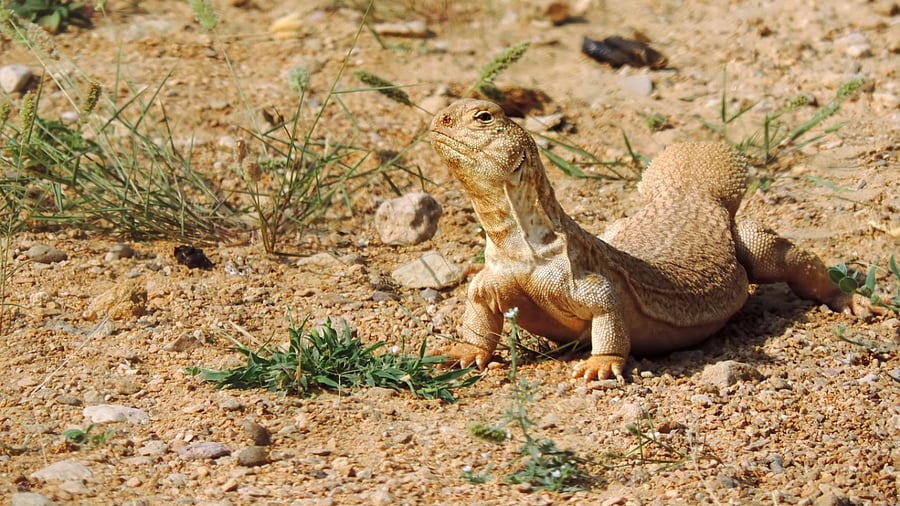
The Indian spiny-tailed lizard, one of the over 230 lizard species found in India, has been a silent victim of illicit wildlife trade activities, wildlife trade monitoring network TRAFFIC and WWF-India said.
Indian spiny-tailed lizard (Saara hardwickii), is listed in the Schedule II of the Wild Life (Protection) Act, 1972, which prohibits its hunting, trade or any other form of exploitation.
It is locally extinct in Uttar Pradesh, and its population in Madhya Pradesh is declining. Presently, the species is primarily restricted to the desert regions of northwest India.
Despite the legal protection accorded to it, the lizard is targeted by poachers and wildlife traffickers across its range in the country.
Rajasthan has emerged as a central hub for poaching and trading of the Indian spiny-tailed lizard from where derivatives (such as oil) are smuggled to Bihar, Karnataka, Maharashtra, New Delhi, Punjab, and Uttar Pradesh.
This herbivorous, solitary, burrow-dwelling reptile is found in the arid and semi-arid regions of northwestern India is targeted for its meat, which is considered a delicacy by locals, and for the oil obtained from its skin and tail that is sold as a cure for various ailments.
TRAFFIC and WWF-India's latest 'Factsheet on Indian Spiny-tailed Lizards in illegal wildlife trade', highlights its ongoing illicit trade and provides information about the species to raise awareness and direct efforts toward its protection.
“Too often, the limelight is on charismatic wildlife species, putting most conservation efforts towards them. However, it is crucial to pay attention to many lesser-known but ecologically important wildlife species like the Indian spiny-tailed lizard that are often heavily trafficked, before they become extinct in the wild," said Dr Merwyn Fernandes, coordinator, TRAFFIC's India Office.
Ravi Singh, Secretary General and CEO, WWF-India adds, "Creating awareness on the Indian spiny-tailed lizard is a step towards its protection and conservation. This species is under threat, and the gradual depletion of its numbers will lead to long-term negative effects. We hope to lead on the message of its conservation."
Live Indian spiny-tailed lizards have been found in seizures reported at Desert National Park in Rajasthan. Other seizures of both live and dead lizards and their products have been reported in Bengaluru and Mumbai. Both locations are outside the species' natural range, indicating that the demand for its product is driving its trafficking.
